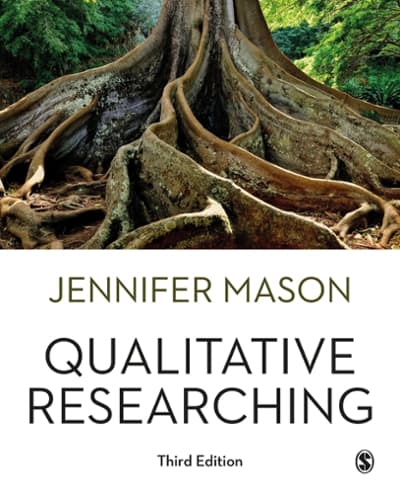Question
Typically, when speaking of validity, qualitative researchers are referring to research that is credible and trustworthy, i.e., the extent to which one can have confidence
Typically, when speaking of validity, qualitative researchers are referring to research that is credible and trustworthy, i.e., the extent to which one can have confidence in the study's findings (Lincoln & Guba, 1985). Generalizability, a marker of reliability, is typically not a main purpose of qualitative research because the researcher rarely selects a random sample with a goal to generalize to a population or to other settings and groups. Rather, a qualitative researcher's goal is often to understand a unique event or a purposively selected group of individuals. Therefore, when speaking of reliability, qualitative researchers are typically referring to research that is consistent or dependable (Lincoln & Guba, 1985), i.e., the extent to which the findings of the study are consistent with the data that was collected.
Reference:
Lincoln, Y. S., & Guba, E. G. (1985). Naturalistic inquiry. Thousand Oaks, CA: Sage.
you will explain criteria for evaluating the quality of qualitative research and consider the connection of such criteria to philosophical orientations. You will also consider the ethical implications of designing qualitative research.
Step by Step Solution
There are 3 Steps involved in it
Step: 1

Get Instant Access to Expert-Tailored Solutions
See step-by-step solutions with expert insights and AI powered tools for academic success
Step: 2

Step: 3

Ace Your Homework with AI
Get the answers you need in no time with our AI-driven, step-by-step assistance
Get Started


